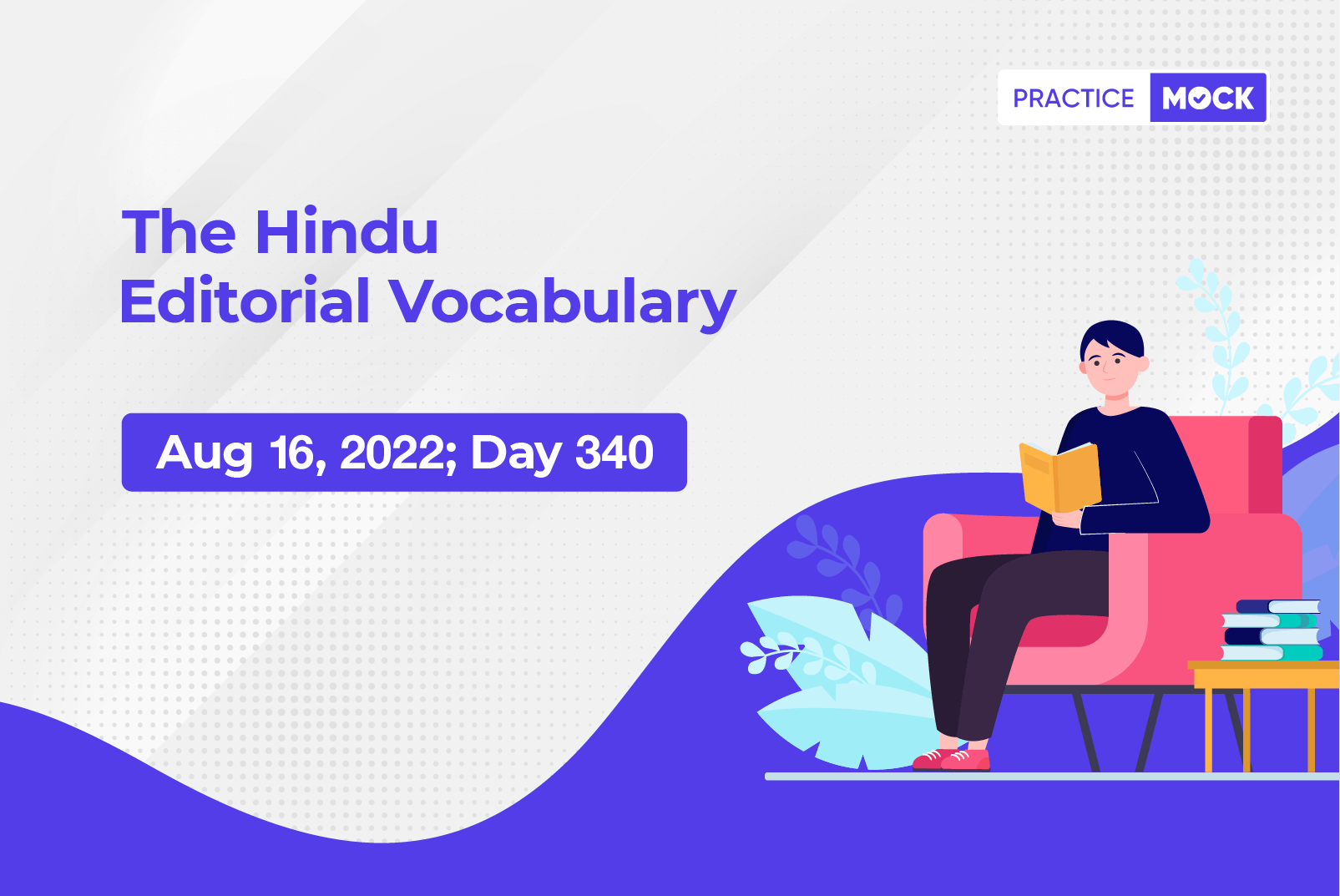| Difficult Word/ Phrase | Contextual Sense |
| Approbation | Official approval |
| Stately | Of size and dignity |
| Pressing | Compelling immediate action |
| Tug | Strive and make an effort to reach a goal |
| Come at the seams of | to break into parts or pieces |
| Stock-taking | Reappraisal of a situation, position or outlook |
| Insight | Clear or deep perception of a situation |
| Expansive | Of behaviour that is impressive and ambitious in scale or scope |
| Pernicious | Exceedingly harmful |
| Big fish | An important influential person |
| Dwell | Exist or be situated within |
| Lace | Spin, wind, or twist together |
| Scanty | Lacking in magnitude or quantity |
| Underline | Give extra weight to (a communication) |
| Turbulence | A state of violent disturbance and disorder |
| Sail | Move with sweeping, effortless, gliding motions |
| Benchmark | A standard by which something can be measured or judged |
| Egalitarian | Favouring social equality |
Meeting India’s aspirations: On Modi’s ninth I-Day speech
India needs better governance for the sake of its own people, not global approbation (Official approval)
Prime Minister Narendra Modi rightly described independent India’s 75-year journey as one of “ups and downs” in his ninth speech from the stately (Of size and dignity) Red Fort on Monday. Praising those who fought for India’s freedom, the Prime Minister pointed to the country’s achievements even as he acknowledged the challenges of fulfilling the pressing (Compelling immediate action) needs of an ever-aspirational society, tugging (Strive and make an effort to reach a goal) at the seams of (Come at the seams of means to break into parts or pieces) government. National pride and self esteem were dominant themes as he urged the country to rid itself of the need to look for approval from abroad. Asking the question about how long India could go on living on “certificates” from abroad, the Prime Minister wondered why India could not develop its own “markers”. Though Mr. Modi provided no context to these remarks, his comments could indicate his unhappiness with international criticism directed at his government on governance and human rights’ issues. Successive Prime Ministers have used their Independence Day speeches as a stock-taking (Reappraisal of a situation, position or outlook) of their government’s record and as an insight (Clear or deep perception of a situation) to what the nation might face. With two years left for the general election, the Prime Minister was in an expansive (Of behaviour that is impressive and ambitious in scale or scope) mood, taking up issues of women’s safety, energy self-reliance, celebrating the diversity of India, the need to respect all languages, and promising an all-out war against corruption and “parivarvad”, or the pernicious (Exceedingly harmful) influence of dynasty. The Prime Minister asked the people to give him their “blessings” as the battle against corruption enters a decisive phase where even the big fish (An important influential person) will not be spared. Even as he dwelt (Exist or be situated within) on governance issues, Mr. Modi laced (Spin, wind, or twist together) his speech with a political appeal.
Mr. Modi was silent about his promises made in 2016 to double the income of farmers by the time the country celebrated its 75th Independence Day. However, he did lay out his vision for an “amrit kaal”, or developed age, in the next 25 years, the 100th year of India’s independence, in 2047. Details of how the country would reach the objective were scanty (Lacking in magnitude or quantity), apparently kept for another day. In keeping with the Bharatiya Janata Party’s new status as the natural party of governance, the Prime Minister underlined (Give extra weight to (a communication)) that India had got a stable government after many decades, resulting in speedy decision-making. There was little in his 82-minute speech about the strategic challenges before the country in the wake of tensions at the borders and turbulence (A state of violent disturbance and disorder) in the international order following the Russian invasion of Ukraine. To achieve its full potential, India must not only be able to overcome many obstacles that hold it back but also sail (Move with sweeping, effortless, gliding motions) with the rest of the world in meeting the benchmarks (A standard by which something can be measured or judged) of democratic rights, equitable distribution of wealth and access to health and education. India might not need approval from other countries, but it needs to do better on rights and freedoms, welfare and justice, growth and development, and in building a more egalitarian (Favouring social equality) society.
Want to improve your vocabulary further? Download the Lists of Word-Meanings of Previous Months here.
- Sign Up on Practicemock for Updated Current Affairs, Free Topic Tests and Free Mini Mocks
- Sign Up Here to Download Free Study Material
Free Mock Tests for the Upcoming Exams
- RRB PO 2024 Free Mock Test
- RRB Clerk 2024 Free Mock Test
- SSC MTS Free Mock Test
- SSC CHSL Free Mock Test
- SSC CGL Free Mock Test
- GATE Mechanical Free Mock Test
- GATE Civil Free Mock Test
- NABARD Gr. A Free Mock Test
- SBI Clerk Mains Free Mock Test
- SSC CPO Free Mock Test
- AFCAT Free Mock Test
- CAT Free Mock Test
- NIACL Assistant Free Mock Test
- UIIC AO Free Mock Test
- UIIC Assistant Free Mock Test
- GIC Assistant Manager Free Mock Test
- NICL AO Free Mock Test
- Free SSC Live Test
- UPSC CSAT Free Mock Test
- CDS-I Free Mock Test
- RRB ALP Free Mock Test


